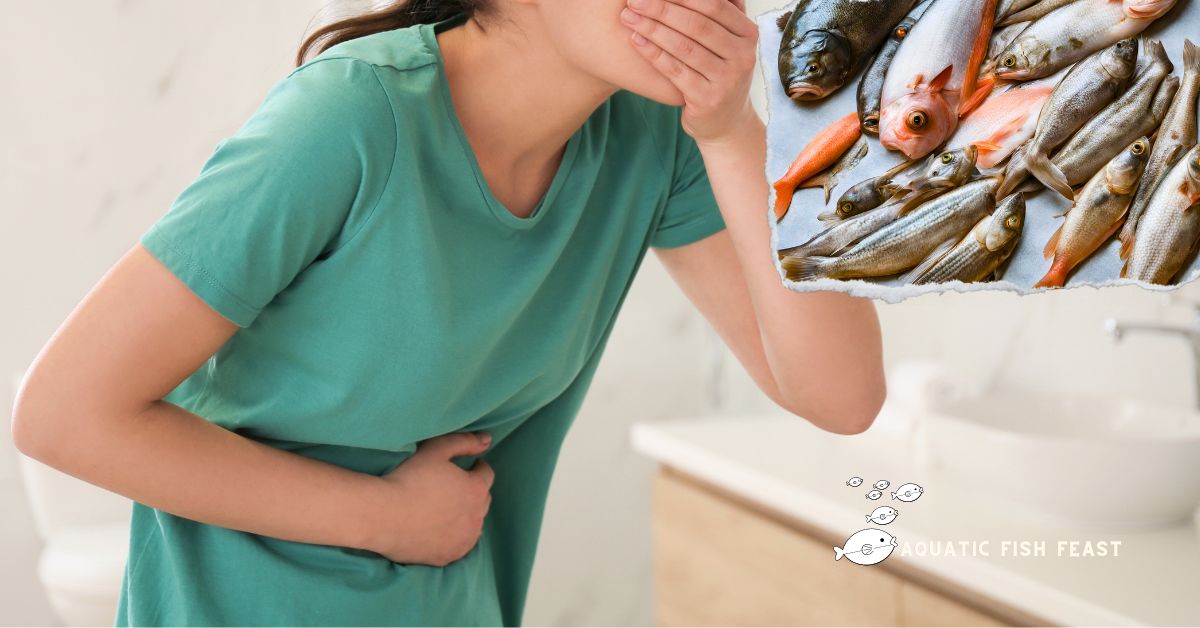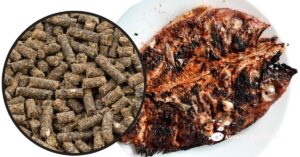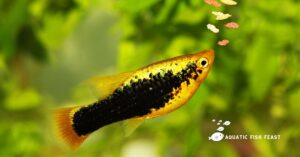Do you want to know how long fish food poisoning lasts? According to my previous encounters, it can take one hour to ninety hours, but the average is between two and a half hours.
The feeling of being ill can last 5 to 78 hours, although it usually lasts 22 to 24 hours. As you read on, I’ll explain how long fish food poisoning lasts and how long it takes to recover.
Now, let’s get started.
Table of Contents
How Long Does It Take To Recover From Food Poisoning From Fish
Most patients recover fast without medical intervention, and symptoms often disappear in 12 to 24 hours.
Taking over-the-counter antihistamines like diphenhydramine (Benadryl) and staying hydrated are two methods of treating mild to moderate symptoms at home.
More severe symptoms, such as dyspnea, tongue and lip swelling, and chest discomfort, need to be treated with antihistamines in an emergency department.
In extreme circumstances, patients may become dehydrated and require intravenous fluids or nausea medicine for therapy.
Scombroid food poisoning is not indicative of a fish allergy, even though it has many symptoms with allergic reactions.
When catching their fish, individuals must keep it chilled at a maximum temperature of 40 degrees Fahrenheit.
There isn’t another trustworthy method to avoid scombroid toxicity. Fish cannot be frozen or cooked to prevent scombroid.
It is hard to determine whether a fish has been preserved correctly during its whole trip from the ocean at a restaurant or retail establishment.
Scombroid is usually not odorous or tasteable. However, avoid eating fish if it tastes peppery or its skin resembles a honeycomb!
Make careful to notify the establishment and the health authorities if someone has symptoms of scombroid poisoning after eating at a restaurant or shop.
That might stop someone else from consuming the same fish and becoming ill.
What Are The 1st Signs Of Fish Food Poisoning
The following are some of the symptoms of first food poisoning:
- Getting the shakes (nausea)
- Getting ill (including throwing up)
- Diarrhoea, which may or may not be accompanied by blood or mucus.
- cramping in the stomach and discomfort in the abdominal region
- A lack of vitality and a state of frailty
- Lack of hunger and appetite
- A body temperature at or above 38 degrees Celsius (fever).
- Achy muscles and joints
- The chills
People who have eaten contaminated food will usually start to feel sick one to two days after eating it. They may also begin a few hours or weeks later than initially scheduled.
What Is The Best Treatment For Fish Poisoning
The majority of treatment is symptom-driven and supportive. Using activated charcoal for
gastrointestinal decontamination may be beneficial if done within 3–4 hours following toxin consumption.
Ipecac syrup administration should be avoided as it may exacerbate fluid losses. Antiemetics can help reduce vomiting and nausea.
At the moment, some doctors advise using activated charcoal for gastrointestinal decontamination. If the poison is absorbed three to four hours after eating, activated charcoal may help.
Keep yourself hydrated. In situations where nausea and vomiting are out of control, intravenous fluids may be required.
How Do You Treat Food Poisoning From Fish At Home
1. One fast way to treat fish poisoning from home is by drinking water, taking broth, or drinking an electrolyte solution.
By all this, you can replace every mineral you lose during the diarrhea and vomiting.
2. Consume food whenever you feel hungry, but begin by eating just modest portions of flavorless and low in fat, such as crackers, rice, and toast.
3. Make sure you get enough of rest.
What Does Fish Poisoning Look Like
The symptoms of scombroid fish poisoning are very similar to those of an allergic reaction. They can appear within minutes to hours after eating such fish that has been infected with histamine.
A rash, diarrhea, a reddening or flushing of the face and occasionally the neck, arms, and upper half of the body, sweat, headache, and vomiting are the most typical symptoms.
In addition, you may feel burning or swelling in the tongue, trouble swallowing, stomach ache, and palpitations in your heart.
What Not To Eat After First Food Poisoning
In addition to avoiding the known or suspected food or beverage, the following are some more items to steer clear of:
- Drinking alcohol
- Caffeine-containing beverages, such as sodas, coffee, tea, and energy drinks
- Dishes that are too hot or seasoned
- Foods that are high in fibre
- Dairy goods are things like milk, cheese, and ice cream.
- Meals that are fatty, fried, or greasy
- Nicotine and tobacco use
- Juices extracted from fruits
Being sick from food doesn’t have to last long, and it’s easy to get better. Patients should be able to return to normal functioning rather quickly if they adhere to the dietary suggestions presented in this article.
Final Thought
Now that we have established how long fish food poisoning lasts, it’s not fun, as anyone with food poisoning will attest.
What caused your illness and how effectively your body can recover will determine the intensity of your symptoms and the length of time they endure.
The majority of foodborne infections clear up in two days or less. Fill up on fluids. If you can, eat. For heaven’s sake, avoid ordering medium-rare chicken.
Other Articles:




